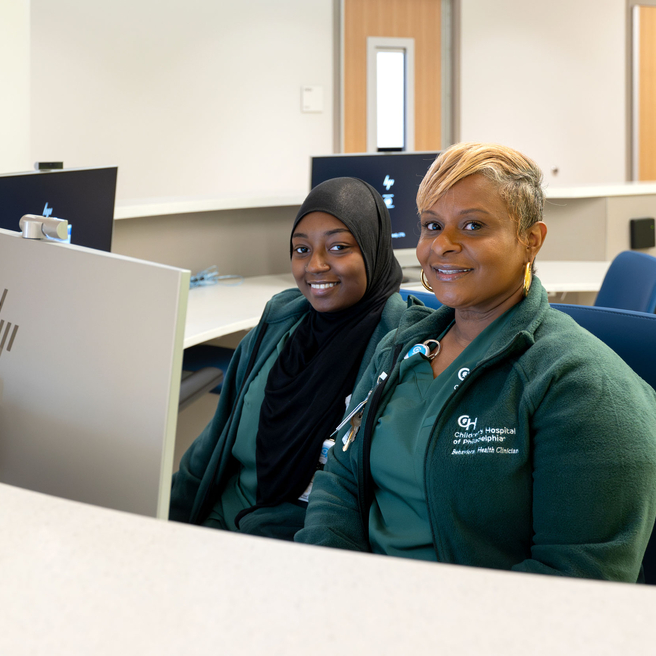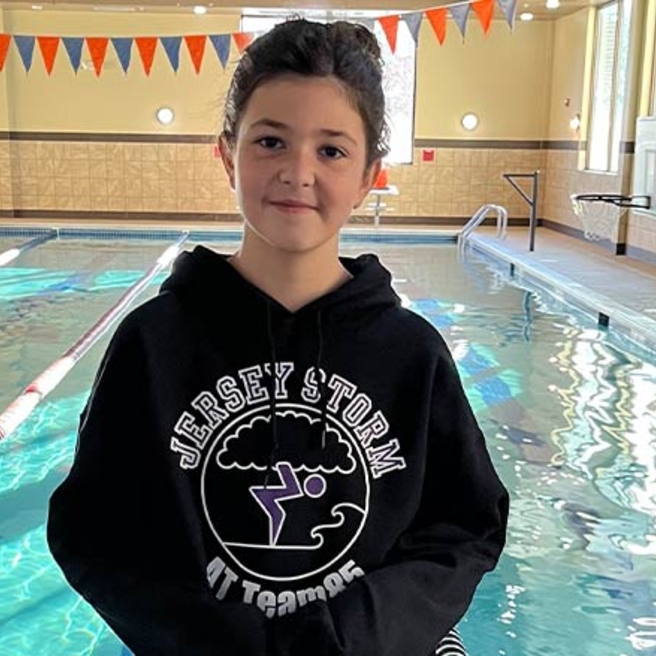What is anxiety?
Feeling worried or nervous is a natural and normal emotion. Many children feel anxious about things like tests or competitions. Anxiety can show itself in physical symptoms too, including a racing heartbeat and muscle tension.
Usually, anxiety is actually helpful. It’s the body’s way of preparing you to deal with stress or keep you alert so you can do your best in challenging situations.
In children and teenagers, anxiety becomes a problem when the feeling is out of proportion to the situation, gets worse over time, and keeps negatively affecting daily life. Excessive anxiety is one of the most common mental health conditions in children — anxiety disorders affect 30 percent of children.
Anxiety disorders are serious mental health problems that can emerge ‘out of the blue’ or develop gradually. Common types of anxiety disorders include:
- Generalized anxiety — excessive daily or near-daily worry about many things; often includes physical symptoms, such as headaches, chest pain and stomachaches.
- Obsessive compulsive disorder (OCD) — anxiety in response to repetitive, upsetting thoughts and repetitive actions to try to relieve the distress caused by those thoughts. For example, a fear of germs that leads to constant hand washing.
- Panic attacks — anxiety that leads to intense physical symptoms, including shortness of breath, dizziness, chest pain or numbness.
- Phobias — an intense fear of specific things or situations that are not dangerous such as excessive fears of choking, dogs or costumed characters.
- Social anxiety or social phobia — an intense anxiety caused by over-prediction of negative evaluation by others in social situations, such as speaking in front of the class.
- Selective mutism — A type of social anxiety in very young children where they speak normally to family members, but fail to speak in other social situations such as at school.
Signs and symptoms
Different children have different symptoms when they’re feeling anxious. Examples of anxiety symptoms your child may experience include:
- Inability to stop worrying
- Inability to stop certain unwanted thoughts
- Avoiding non-dangerous situations that the child previously was comfortable with
- Feelings of panic (heart pounding, dizziness, shortness of breath, sweating)
- Feeling overwhelmed
- Butterflies in the stomach
- Stomachaches (including vomiting and diarrhea)
- Headaches
- Fatigue
- Sleep problems
Causes
Everyone has feelings of anxiety occasionally, especially in response to stressors. If your child is attending a new school, going to an unfamiliar place, or preparing for a challenging school assignment, he may feel anxious or nervous for a limited time.
This type of normal anxiety comes from the body’s natural way of dealing with stress. It passes once the stressor has passed, usually within a day or a couple of days. When the anxiety resolves, your child relaxes again and generally stays relaxed.
For children with an anxiety disorder, the anxiety is chronic and interferes with your child’s life. Some possible causes of an anxiety disorder include:
- A genetic predisposition to anxiety
- A learned behavior from a parent
- Exceptionally stressful life circumstances
Also, experiencing a traumatic event can result in persistent anxiety or post-traumatic stress disorder.
Testing and diagnosis
An accurate diagnosis and early treatment are important in overcoming an anxiety disorder. If you believe your child suffers from an anxiety disorder, you can talk to your child’s pediatrician about it or request a referral to a therapist.
A therapist can diagnose an anxiety disorder (or combination of disorders) and identify potential causes by:
- Asking your child a series of questions about her life and behavior
- Assessing his symptoms
- Asking you questions about your child’s behavior
- Evaluating the degree of disruption in your child’s life due to the disorder
Treatment
Early treatment is key to overcoming an anxiety disorder and minimizing the chance of recurrence. Based on your child’s symptoms and specific disorder, your child’s therapist will design a personalized treatment plan.
Therapy sessions may last for several weeks or longer. The current options for treatment are highly effective in helping a child overcome or manage an anxiety disorder. Options include:
Individual cognitive behavioral therapy
Children will learn relaxation and coping skills for managing the symptoms of anxiety. They will also work with a therapist to gradually approach things or situations they have been avoiding.
Family-based cognitive behavioral therapy
The family meets together with a therapist to develop and carry out a plan for coping with anxious feelings and gradually approaching feared situations.
Medication
Your child’s therapist may recommend that your child sees a physician who can prescribe a medication to reduce or prevent the feelings and physical symptoms of anxiety.
Outlook
Most children who receive early and effective evidence-based treatment for an anxiety disorder will recover. However, in some children, the anxiety disorder recurs or a different anxiety disorder develops. Sometimes, depression develops later as well. Early treatment is key to minimizing your child’s vulnerability to later episodes of anxiety and depression.
Follow up care
Depending on your child’s personalized treatment plan, your child and family may continue to meet with the therapist for several weeks or longer for ‘booster’ sessions to monitor and maintain progress.
Your child’s therapist may also recommend other basic lifestyle interventions, like relaxation strategies, improved diet or sleep habits, and exercise. If your child wasn’t prescribed a medication initially, they may have a need for medication, and medication monitoring, at a later point.
Why choose CHOP?
Early, effective treatment is crucial to helping a child overcome an anxiety disorder and to prevent a later vulnerability to anxiety and depression. Treatment also allows your child to flourish in school, relationships, and managing everyday challenges. The team at Children’s Hospital of Philadelphia (CHOP) is specially trained to diagnose, treat, and manage anxiety disorders in children using the latest, scientifically based methods. They have the skill set to lead your child to long-term success.
Resources to help
Anxiety Resources
Child and Adolescent Psychiatry and Behavioral Sciences Resources
We have created resources to help you find answers to your questions about behavioral and mental health and to feel confident with the care you are providing your child.

